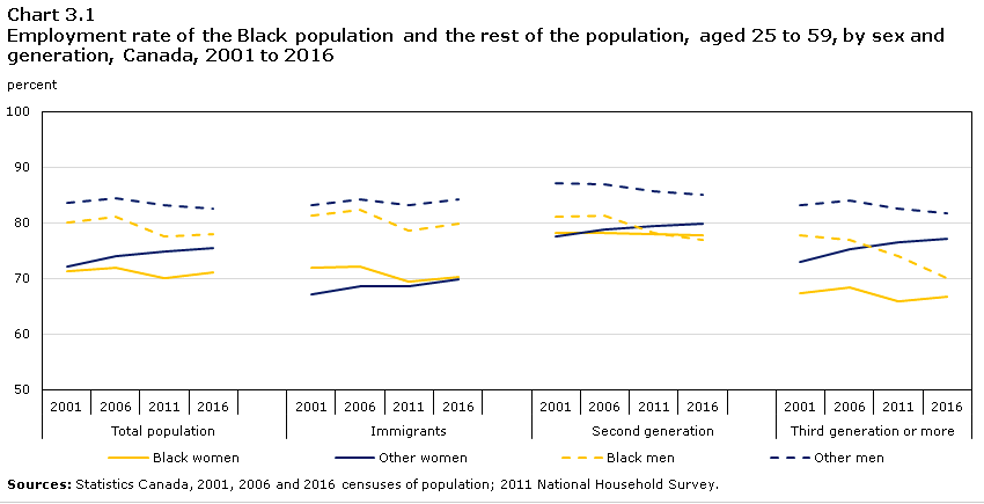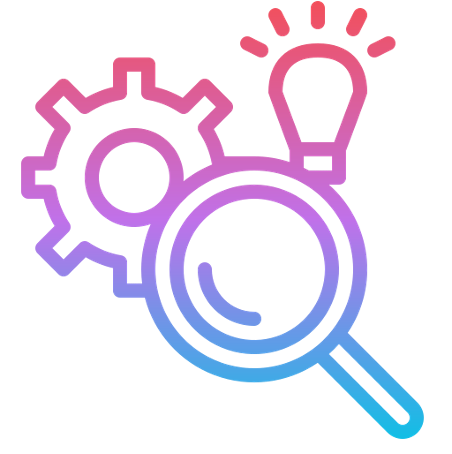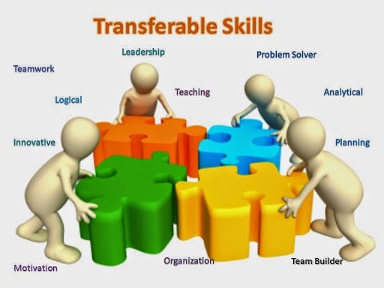On a cold, snowy morning in February, nearly 200 people packed into the Federation of Black Canadians’ Black Leadership Breakfast to kick off Black History Month — a powerful gathering of activists, youth leaders, community groups, corporate allies, academics, and...
What is upward mobility?
Definition of upward mobility: the capacity or facility for rising to a higher social or economic position. (Merriam-Webster Dictionary)
The process of “moving up the ladder” in society is another form of upward mobility. While studies have shown that two streams of upward mobility stem from socio-economic backgrounds and individual traits, both are associations of work achieved.

Snapshot of Barriers to Employment within the Black Community
According to Statistics Canada, a study was conducted of the employment rate of Black Canadians aged 25-59 who were employed. The studies concluded that the Black community was amongst the lowest of the entire population. In 2016, 78% of men and 71% of women were employed, compared with 83% and 76% which was contrasted to the other communities in the country (Statistics Canada, 2020).

Figure above shows the Employment rate of the Black population and the rest of the population, aged 25 to 59, by sex and generation, 2001 to 2016.
Source: Statistics Canada
Did you know?
The employment rate is lower for Black men than for the rest of the male population
In the 2016 Census, the employment rate of Black men aged 25 to 59 was 78%, compared with 83% for other men—a difference of 5 percentage points.
More than a quarter of Black women are lone parents
In the 2016 Census, 27% of Black women aged 25 to 59 were lone parents, compared with less than 10% of other women. This situation was more prevalent among female immigrants than among Canadian-born Black women.
One-quarter of Black children are living in a family in poverty
In the 2016 Census, according to the market basket measure of low income, 27% of Black children younger than age 15 were living in a family in poverty. This proportion was half as high among other children (14%).
3 Ways to Identify Transfer Skills
1. Think About the Skills You Have Inquired In Your Day-to-Day Life
We all have transferable skills that we use in our daily lives. With how we navigate in our work experiences and in our past education, we have adapted, curated, and molded hard and soft skills through these avenues. For example, you may have gained formal training and techniques used in your previous jobs – that is an example of hard skills. These are related to knowledge and abilities that you have acquired to perform and execute your job duties. This could include any types of technical skills, marketing, applications, project management, etc. Soft skills are a combination of social and interpersonal skills that you have developed in a professional and educational setting where you may have used certain skills such as patience, teamwork, time management, etc. Both of these skills are crucial and important to have when you are learning how to ‘move up the ladder’ within upward mobility.


2. Development of Transferable Skills
Now that you have identified what hard and soft skills you have, think about ways you can sharpen these skills through your job applications or resume. Cater your skillset to align with a particular job position or role you want to land and write out your strengths that could attest to this. Being able to reflect and identify key skills is how you can strongly stand out from a pool of candidates. Employers are always looking for candidates who demonstrate key and integral aspects of their skillset to be a good match for their team.
3. Courses and Trainings
If your goal is to get a job promotion, or land a new job in your dream field, try to add a new credential/training program to your list of accomplishments. There are plenty of free online resources that could help you gain significant status in the employment field by taking some online training courses that could provide you with critical hard skills. For example, if you plan on getting a leadership position, consider taking a Project Management course that could potentially land you a role and greater salary based off of that extra course. Check out Coursera for tons of free certifications and modules that will support your future career and endeavors!

Importance of Identifying Transferable Skills
Transferable skills are what make you marketable as an employee. Organizations look for individuals who can best fit their company and look out for sharp candidates who can think outside of the box. Whether you are landing your first job or have senior level experience, everyone has qualifications that can support their future endeavors.
Here are some examples of top transferable skills:
| 1. Problem-solving 2. Analytical thinking 3. Leadership 4. Adaptability 5. Teamwork |
6. Communication 7. Relationship building 8. Attention to detail 9. Computer skills 10. Creativity |

Resources
Resume Prep
Interview Tips
Training Opportunities
Latest Events
Past Events

Federation of Black Canadians Recognizes Black Leadership in the GTA and Talks Youth Unemployment
On a cold, snowy morning in February, nearly 200 people packed into the Federation of Black Canadians’ Black Leadership Breakfast to kick off Black History Month — a powerful gathering of activists, youth leaders, community groups, corporate allies, academics, and...

February 2026 – Grants Black-led Nonprofits
We've got a new set of Grants Black-led/ B3 Non profits and Charities. Whether you're launching a new initiative, scaling your impact, or need support for infrastructure and capacity-building, here are current grants to help fund your Black non profit in Canada to...

Bill C-9 explained: What the Bill proposes and why it’s sparking debate.
Author: Lesly N Zeusseu TL;DR Bill C-9, officially known as the Combatting Hate Act, is a federal bill introduced in September 2025 to strengthen Canada’s response to hate-motivated crimes and intimidation. While its goal is to better protect communities targeted by...




